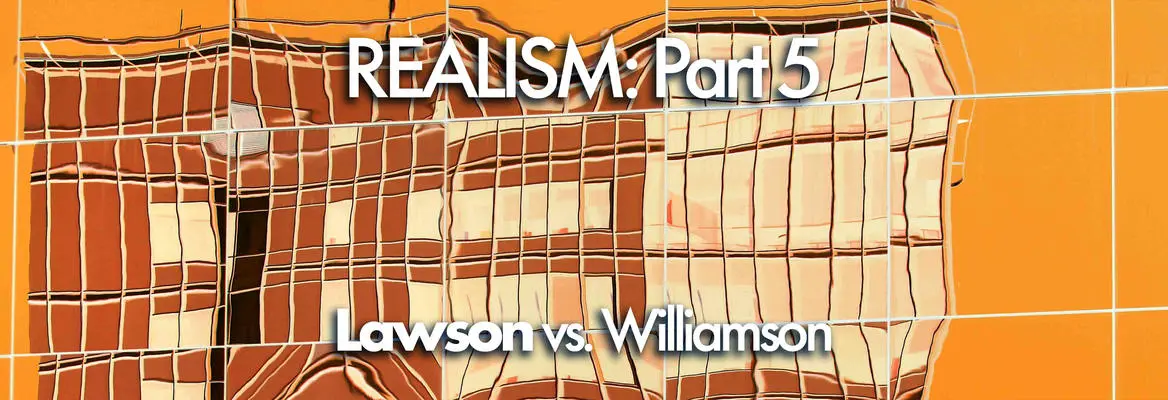Realists might claim that paradoxes of self-reference can be theorized away but the question remains: how can language describe its own relationship to the world? Rather than being true or false, language is a tool to be judged by its usefulness. From holocaust denial to Trump’s election win, the way to counter problematic opinions is not a decree of falsity but by a demonstration of their worthlessness when engaging with the world, writes Hilary Lawson.
In response to criticisms that I made of realism in my previous article, Timothy Williamson has two primary lines of response. The first is that while the paradoxes of self-reference might not have been solved we have possible strategies. And the second is a counter-challenge to postrealism that if there is no truth there is also no falsity, and that cannot be a viable position. Yet, neither of these addresses the failures of realism, and they misunderstand the force and potential of postrealism.
Let me begin with self-reference. Moving on from his original claims of 'progress' by Tarski and Kripke, Timothy Williamson cites others who have possible strategies to formulate a consistent logic that incorporates self-reference. The claim is that unlike Tarski they avoid the problem of arbitrarily outlawing self-reference by allowing self-reference but changing the 'principles about truth to not apply in some cases'. Yet in effect this amounts to the same thing. In fact Tarski's own account could be described in this way since his hierarchy of languages succeeds only by providing an account of truth - namely that no language is allowed to contain its own truth predicate - that at once makes genuine self-reference impossible. In these instances the definitions of truth are formulated to outlaw what would otherwise be paradoxical self-referential claims.
This will not wash as a solution to the problem of self-reference in the context of realism. The challenge is not to create a consistent logic that avoids self-referential paradox. This might itself be a valuable goal, and is certainly itself not straightforward, but it is not the issue. The challenge is to account for how the self-referential paradox - as it applies to a realist account of language - can be avoided. This cannot be defined away. Self-referential paradox is at the centre of the attempt to describe the relationship between language and the world. Namely that for language to describe the relationship between language and the world, language has to stand outside of itself.
Wittgenstein famously closes the Tractatus with the remark that having 'climbed the ladder' it must be thrown away. This is because his realist account of language concludes with the insight that language cannot refer to metaphysics. Yet the realist theory itself is an example of metaphysics.
Self-referential paradox is at the centre of the attempt to describe the relationship between language and the world.
Hilary Putnam came to the same conclusion. Regarded at the time as one of the leading analytic philosophers in the world, he colourfully concluded in 1990, that the project to describe the relationship between language and the world was 'a shambles'.
[i] I do not therefore claim originality for the argument that self reference is an unavoidable Achilles heal for the realist project, or for identifying logical flaws in Tarski's attempt to overcome self-referential paradoxes. The case I have put forward is somewhat different to Putnam, and I draw rather different conclusions, but the core of the attack is the same.



















Join the conversation